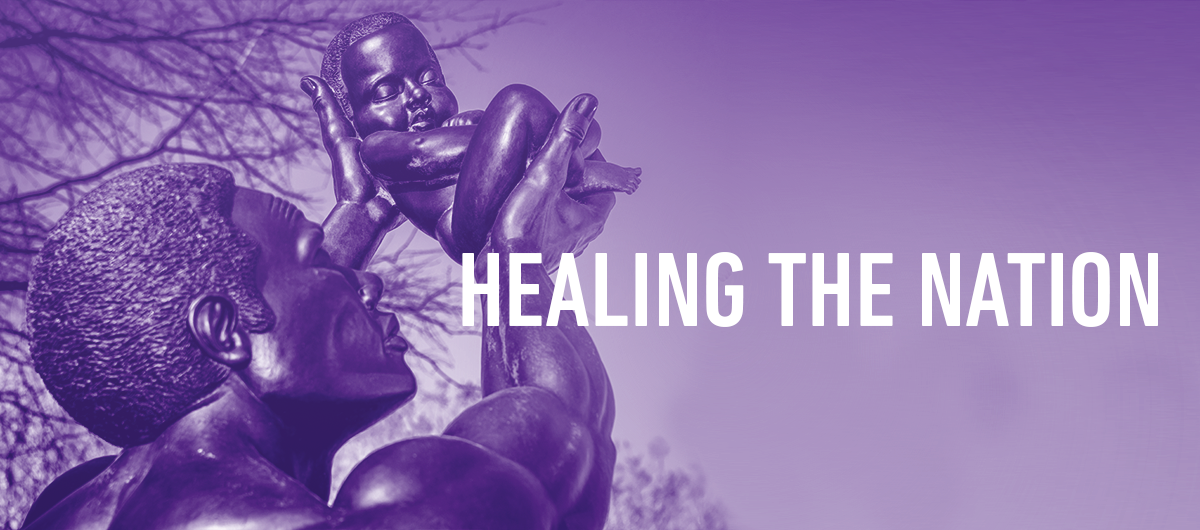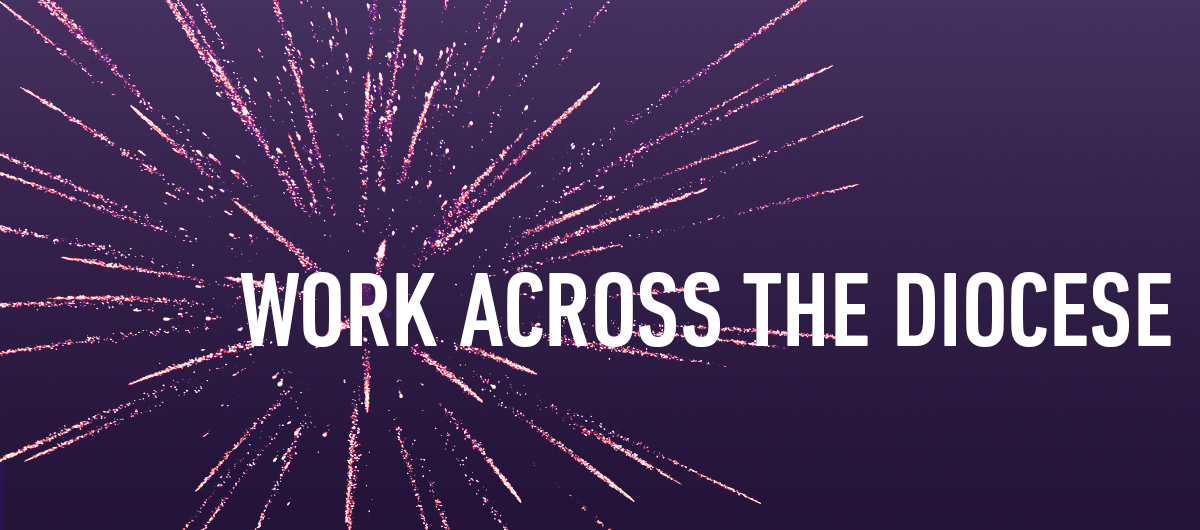AN EXCERPT FROM BISHOP WRIGHT’S ANNUAL COUNCIL ADDRESS
“2020 has distinguished itself in heartbreaking ways. The COVID pandemic rages on, the pandemic of racism continues to infect our lives and our institutions, and then there is our political life. What we do know for certain, and vividly so, is that our country remains, as it was from its founding, divided.
The good news, the redeeming news, the sustaining news is in this season, and in every season, God is still God and the purposes of God have not changed with the pandemic or with racism or with political division, and therefore, the purposes of Christ’s church have not changed. While it is true that our buildings await our return, the church is not closed nor has it been closed. You can only close buildings; you cannot close church because church is water and church is spirit and church is heart and church is people. The church is a living thing.
The church, brothers and sisters, has been deployed over these last months. We have been deployed and the definition of deployed means that we have moved into position for advancement.”

When 2020 dawned, bringing in a new decade whose numbers symbolize perfect vision, no one could have foreseen what the year would bring. As we put away the Christmas decorations and gathered to watch the first football games of the New Year, all seemed “normal.” Then everything changed. But with the isolation during the pandemic, Bishop Wright said, many of us discovered God’s willingness to be met and adored in new ways.
As the seriousness of the COVID-19 virus became obvious, the Diocese formed a COVID Task Force to advise the bishop and clergy with data-driven recommendations. Members continue to serve with faithfulness and wisdom and we’re deeply grateful for them.
To keep connections strong, in March the Diocese began producing For People with Bishop Rob Wright, a podcast in which the bishop meets listeners at the crossroads of faith and life to explore the challenges of an ever-changing world.
In May Bishop Wright took us on “a deeper dive” into ourselves with a five-part series called Movements of Faith, looking at reality, grief, hope, faith, and courage.
Premiering in August, Imagine Church offers a renewed approach to online worship through music, visual art, and spoken word. A new episode on how to center our lives on Jesus airs on the fourth Sunday of each month.
Annual Council took place in November, but not “as usual.” The meeting was held virtually, with Episcopalians throughout the Diocese tuning in from homes and offices. You can still watch the Friday Worship Service, Bishop’s Address, and the Youth Address online.
The fifth issue of Pathways was published with an expanded online presence. Content exclusive to the online edition enriches the experience for readers and provides an opportunity to learn more about the subjects covered in the print edition.
The good news of the gospel becomes the good news of the Diocese as individuals, parishes, and ministries respond unselfishly to Jesus’s command to love one another during this pandemic. We are invited to read Stories of Hope and Helping and be inspired.
Launched in August, the Cathedral Bookstore’s virtual series Conversations With Our Priests offers meeting clergy in a new context through weekly discussions.

They were ordinary Americans going about their lives when the circumstances of their deaths engraved their names in the national psyche. Breonna Taylor, George Floyd, Rayshard Brooks are but a few of the most recent unarmed Black and Brown Americans to die at the hands of law enforcement personnel. The situation challenged people of faith on many levels, and many took to the streets with new awareness, demanding justice, and an end to racism. Rather than just endure the season of “disruption and disorientation,” Bishop Wright said he hopes the despair will bring greater gratitude to God and stronger commitment to each other.
Videos of George Floyd, an unarmed Black man dying at the hands of Minneapolis police, shook the nation. Minnesota Bishop Brian Prior joined Bishop Wright on For People to talk about how the church can proclaim Jesus’s love while demanding justice.
Another For People episode featured Sheffield Hale, President and CEO of The Atlanta History Center. The conversation focused on the history of monuments, understanding the context of the time they were put up, and what are the next steps forward.
Bishop Wright represented the Diocese in June on a Soul of the Nation podcast with Sojourners founder Jim Wallis to talk about the original sin of racism and how to end it through faith.
Rose Scott, the host of Closer Look on WABE, interviewed Bishop Wright in November about his 9 Things You Can Do to Heal the Nation. He talked about prayer, kindness, encouragement, humility, responsibility, honesty, diversity, equity, and blessing our enemies.
In November, the Absalom Jones Episcopal Center for Racial Healing officially took the lead in designing and implementing the Reimagining Policing and Public Safety Initiative in the Diocese. The Center will be rolling out more initiatives in 2021. Dr. Catherine Meeks says the goal is for people in the community and officers to realize that all are beloved children of God who should be treated with dignity and respect.
The Dismantling Racism Youth Curriculum was developed to help youth connect faith with racial healing. More youth are participating and the curriculum continues to be refined. A new Dismantling Racism Youth Curriculum Leader Guide was released this year.
We remember the Right Reverend Barbara C. Harris, who passed away in March. She was the Anglican Communion’s first Black female bishop and was an advocate for social justice and dismantling racism. In 2019 she was featured on Dr. Catherine Meeks’s podcast, A Brave Space with Dr. Meeks; this is one of the last recorded conversations with Bishop Harris.
Atlanta and the world lost two giants of the Civil Rights movement in 2020 and the communion of the saints gained two prominent new members with the deaths of Congressman John Lewis and the Rev. C. T. Vivian on the same day in July. Rest In Power.

Good work and God’s work go on through all manner of trials and tribulations — even worldwide pandemics. “You and I have been called, put together now in this season to do all the good we can by all the means we can in all the ways we can in all the places we can at all the times we can to all the people we can for as long as we can,” Bishop Wright said in his Annual Council Address.”
In 2020 BC—Before COVID— ReviveATL, a Diocesan revival service featuring Presiding Bishop Michael Curry, drew some 2,000 people with 17,313 online views. The theme was caring for the forgotten, with a focus on children, veterans, refugees and prisoners.
The Episcopal Community Foundation (ECF) continues to impact communities across our state by working with Episcopalians that lift up people facing poverty and oppression. In September, ECF announced a new Ministry of the Month program that awards a ministry or organization with a donation and recognition for their work to serve as an example to others.
Happy 10th anniversary to Path to Shine, a Diocesan-wide after-school program for at-risk children founded in Smyrna by Lesley-Ann Drake when she was preparing for the diaconate. Volunteers provide free mentoring, tutoring, and enrichment programs.
The Reverend Kim Jackson is the first openly gay Black woman to serve as a priest in the Diocese and in November she became the first out LGBTQ person to be elected to serve in the state senate. She will continue to serve the Church of the Common Ground, a congregation that meets on the streets of Atlanta.
The Episcopal Communicators Polly Bond Awards honored All Saints’ Episcopal Church, St. James Episcopal Church, and the Diocese of Atlanta with awards for excellence in communication across a variety of categories.
